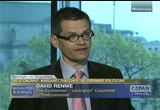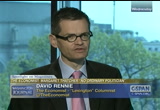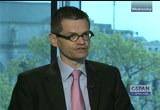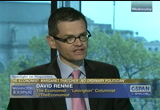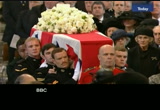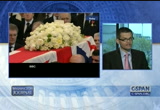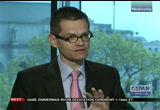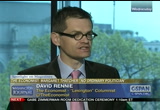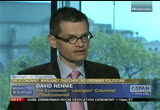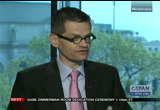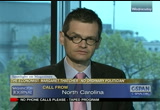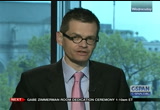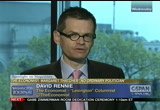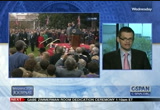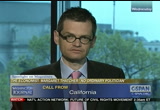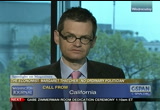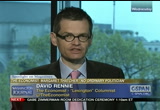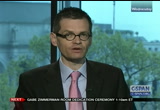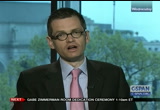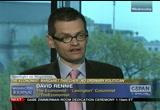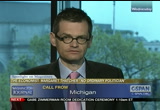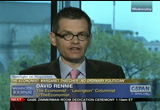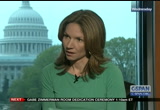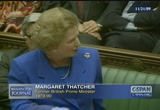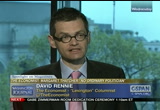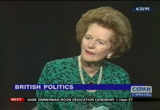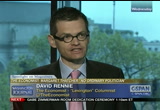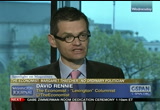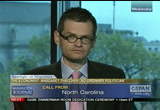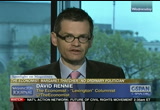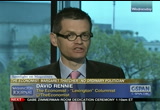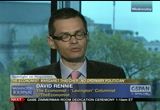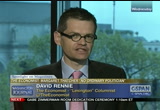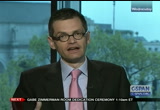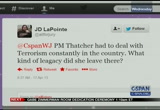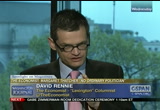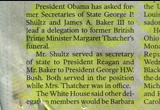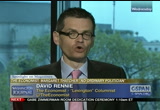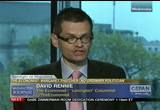tv Margaret Thatchers Legacy CSPAN April 21, 2013 12:30am-1:11am EDT
12:30 am
abortifacients in their insurance program, and i'm worried when the supreme court takes up gay marriage. i'm worried about things i see universities. i see more and more the state imposing a particular kind of agenda. it is really a worldview. this is bigger than politics. bigger than republicans and democrats. it is a particular worldview, and that is what i'm investigating. ash onauthor of afterwards. sunday night at 9:00, part of book tv this evening on c-span 2. >> now, a discussion on the life and legacy of former british prime minister margaret thatcher. this is 40 minutes. >> taking a look at margaret thatcher and her legacy. david rennie of "the economist"
12:31 am
joined us. inside is a four-page sus to let that youd.-- special helped tput together. the headline is -- no ordinary politician. why is that? guest: from a british perspective, she is one of the rare politicians who saved her own country from a decade-long decline that a lot of people thought was never going to end. and she gave the world an ism. she gave us thatcherism. host: what does it mean? guest: a believe in individual freedom. individual freedom is linked to private enterprise. the government has evolved in
12:32 am
the economy, but if it gets too large and the state interfere, they will crush freedom and growth. that was born out of a deep understanding of what was going wrong in the united kingdom, which was not much of a socialist country as -- by the time margaret thatcher came to power, it was a failed experiment and corporatism. the unions and businesses all muddled together and it was a consensus-based structure. britain was completely broken, runaway inflation, and i was a young child when she came to power. but i remember those strikes. nothing was working, everything that britain made, all of the cars out of our factory -- she brought us the way around. it was a painful experience going through that. host: you wrote about her conviction, and the answer to
12:33 am
her conviction was in her handbag. she carried around with her a quote from abraham lincoln which said "you cannot strengthen the weak by weakening the strong. you cannot ring about property-- prosperity by discouraging thrift. and you cannot help you wage earner by pulling down the wage payer." guest: that speaks to her strong points. she looked to america for guidance, and thracian, and strength. it is natural that she would have a lincoln quote. she started from an absolute set of core principles, which she brought to every fight. that is obviously a secular text from lincoln. she was a staunch methodist. she revered her father, a local town counselor. it was a pillar of a local
12:34 am
methodist church. i kind of thrift, hard work, self-reliance, not just in economic recipe but a moral recipe. does the government have the right to take the money of the strong to give to the week? that was extraordinary that redistribution was progress, that it -- the government's role was increasingly to move toward a nirvana. in stating those lines, which are probably not as controversial in america. the year before she can to power, the tax on earned income was 98%. what that basically means if the government was saying that was
12:35 am
the moral position. if you are earning that kind of dividend income, you should not have it. it says it is immoral to have this. this is more money than you need, more money than you should have, therefore the state is going to take it and give it to people less well-off off than yourself. that was the moral consensus. so that seemingly innocuous piece of lincoln, perhaps, to american viewers, was incendiary. it was unbelievably radical when she set it back in the 1970's. host: we're talking today about her legacy legacy, the day that she was buried in england, earlier this morning, 4:15 eastern time. we covered it live. you are seeing there a video of her casket coming into the church there. what do you make of this event today, and how the country is reacting?
12:36 am
guest: it is worth going out that depending on how old people are in britain when they watch that, it is laced with a lot of memories. the cathedral is one of the two big national churches in london. it is not the one where we crown kings or queens, that is westminster abbey, but this is in view of all sorts of ideas about the second world war. it is imbued with ideas of state funerals, winston churchill -- it is also for people of the right age, it talks about the falklands war because there was an extraordinary gamble. saving britain's reputation. a victory parade and a victory service. she had a public fight with the head of the church of england about the nature of that
12:37 am
service. it should be a victory service or should it be a remembrance of the dead. this is how things were and that point, 1983. the archbishop of canterbury hated thatcher, or dislike her strongly. he wore that metal on his casket in the pulpit in support of the cathedral. and everybody understood that this was his rebuke of the prime minister who is he saw as a warmonger, taking credit for the victory. so it is a very political space. all of that will be floating around as people watch this ceremonial national parade. the fact that it is in this place. all of that is in the air. host: the video coming from bbc
12:38 am
when the funeral started, the reverend spoke. one of the first few things he said was a storm of controversy. conflicting opinions about the prime minister. so what is her legacy today? guest: if you are talking about britain, it depends on how can old people are and it depends on where people live. so there are parts of britain where the big, heavy industry under mrs. thatcher, places like wales, scotland, the north of england. she is frankly hated there. you did see people in the streets with champagne dancing and celebrating her death. personally, i can understand on the one hand, i can see why if you are in a mining town a lot since coal mine and there is no work there, it is hard to see
12:39 am
anything great about her. i think objectively, they are missing the role played by globalization if you look at western europe and other countries, noticeably the uk, which close there, that about the same time. because she was such a divisive figure, i think there is a sense in quite a lot of the uk that somehow she chose to close the heavy industry because she hated heavy industry. so vindictively she destroyed those communities. that is the case and lots of places. i think a lot of people, and i was at university when she lost power, and i was a humanities student, i thought she had basically been a very wicked person. i was frustrated by her colleagues in the conservative
12:40 am
party. and i went through a journey which i think a lot of people then went through thinking, although by the end she was very strong, she was very hard to like, very abrasive, she became a kind of a caricature of herself at the end. looking back at the great things she did, -- things she did, reining in high inflation -- 25% inflation. those big things that we all sort of thought were terrible at the time, we have come to realize that they were what we need. it was a painful medicine. that is not just people like me working for "the economist," it was people like tony blair, who said he was a child of thatcher. the presumption is that economic activity is best left to the private sector.
12:41 am
that was tony blair saying that. if you ask what people say about thatcher, they remember the business. it is almost like the civil war at times. she was celebrated. she was not easy to like. but she left the country in much better shape. she saved the country. host: let's get callers involved. kelvin from salem. caller: good morning. continue kudos for the great job you and your team do in giving us the other side, whatever that means on a given topic. my question has to be about mrs. thatcher and president reagan. they complemented each other as far as world leaders better than anyone since roosevelt and churchill.
12:42 am
but my specific question is after two of the major overseas involving president reagan, the iran-contra issue and then the funding of the mujahedin in afghanistan when the soviet union was there, which at that time included osama bin laden. after president reagan was out of office, i was wondering did lady thatcher ever have any public comments about those two particular blemishes on her good friend's president reagan's record? i will get off the line for your answer. guest: i will have to take a pass on a detail. i do not want to make up an answer. i do not know if she made any comments or in generally comments. in general, she cannot not have been more unwavering in her support of president reagan. it was not just the foreign- policy support.
12:43 am
famously, they both worked to speak harsh truths about the unsustainability of the soviet union, something that coincided with the implosion of the soviet union under its own contradiction. some conservatives will tell you it was almost sort of like moses parting the red sea. they tear it all down. i don't think it was quite that. but clearly the truth telling to the soviet union was not a relevant and gave enormous hope to dissidents working behind the eastern block. domestically, they had a tremendously important impact on each other. they were both trying something, not identical but something very radical that was a kind of break with the economic policies and domestic policies of the past. the fact they were not isolated, that they could support to --
12:44 am
point to someone else on the other side of the ocean in charge of the important country who was doing the same thing, that make quite a difference, i think. you can see in the tributes paid to lady thatcher that people who work closely with president reagan said it made a difference. there is this impressive leader in europe who is close to him and share some ideas. host: was it vice versa for her in britain? guest: it was. famously, they got along well. but there were differences. it is interesting seeing republicans claiming her after her death as almost a second reagan, a second half of a secular icon. so claiming her almost at their it is important to remember that actually lady thatcher raised sales taxes to compensate for lowering income taxes. she was not in any way on the same level as president reagan when it came to deficits will
12:45 am
take care of themselves if we cut taxes and growth will come in. idea that cutting taxes raises revenues and you do not have to worry about deficits, that was not what lady thatcher was at all. she was the grant them -- --ntham housewufe adding up she was much more cautious. helen, republican color. caller: i am from manchester, england. i frequently visit my relatives in england. you know, in the late 1970s early 1980s i was adding there for a little while and i would talk to my cousins. they really hated margaret thatcher because they felt that she was a direct threat to their own livelihood. they were very pro-union, very labour party and they believe thatcher was going to take away their jobs, their homes, their
12:46 am
education. and i was there two years ago. speaking to the same cousins, they still hate thatcher. they blame her for all of england's economic woes, blame her for the breakup of the uk that is pending with scotland, if itey really feel that was not for the government, for socialism, they would have nothing. these people are physicians and actuaries, all well-educated, but they came from the working classes, from manchester. they cannot seem to pull away from the belief that if it was not for marxist policies and for socialism they would have absolutely nothing. conversely, if you talk about the falkland islands, when i talk to them about the falkland islands back when it was happening and now, they have the same attitude that the falkland islands was a case of the british empire and though they may not like their prime
12:47 am
minister at that time they -- the falkland islands was a very strong issue with them and that this was british. again, and it was an affront to them. host: we will leave it there. guest: fascinating to hear that on the ground report. quite right, there is still a lot of dislike of lady thatcher but if you dig into that, people who work in the public sector were very angry with her then and are very angry with her now. one of the fascinating paradoxes is she was quite a paradoxical figure -- she was actually pretty cautious. her rhetoric was extremely strong and she did some very bold things in terms of taking on specific leaders, particularly people like the coal miners, but if you look at the share of national wealth in the public sector it did not fall. she either actively increased spending on the public health system, the national health service, in real terms.
12:48 am
people did not give her credit because her rhetoric was all .bout praising entrepreneurs she had the famous phrase once about her contempt for public transit. the sort of thing people latch onto. she said a young man, if you were still taking a bus when he was 30 you could consider yourself a failure. that is quite un-european. for thet of contempt public sector, public transport, public things, community things were for losers. the future was entrepreneurs and people in private enterprise. that was quite un-british. it seems a bit pushy and was hated, not just on the left but also by some on the right. the other fascinating thing about lady thatcher. she ended up as a bear and asked pretty regal in old age, but the old aristocratic
12:49 am
paternalist tories were slightly disdainful of people who were in grubby business and trade. they were shaken up by her. so it is a very radoxical legacy. as you say, absolutely the fascinating mix of falklands and public sector. host: writing in "usa today" -- you either really love tour called her thatcher milk snatcher. a picture of the late prime minister in 2006. on twitter -- both thatcher and reagan made it possible for banks to gamble the future of its children. the loosening of bank regulation robs the middle class. guest: if you were putting lady thatcher on trial and you were the council for the prosecution i do not think you could get ,way with the question of
12:50 am
where some of the bank regulations mistaken? the broader context is that london as a financial center look as though it was slipping away in the 1970's. thatig deregulation through open london to the world and made the city of london this extraordinary united nations of finance with banks and trading houses from around the world, trading products for every time zone, that was their creation and it brought tremendous wealth to the uk and tremendous risk to the uk. it has made the uk economy it very risky sector. would people want to go back to the old-fashioned days when there were a few sleepy stockbrokers collecting fees from duchesses to trade their shares and a few merchant banks having long lunches and not much else? i do not think people would want to go back to that. what she shook up was not really
12:51 am
worth saving. within that there were specific things. ing thense, the buccaneer an finance and the stable side of finance. in a sense she removed the barrier and let them do it all. that has been tremendously volatile. we saw that in 2008. as with so many things about margaret thatcher, would people really want to go back to what came before them? i do not think they would. host: battle creek, michigan. caller: i was wondering if the same thing has happened in britain that has happened in the united states. , and "reagan, thatcher deregulation" -- at this point, we are suffering from deindustrialization. a few good paying manufacturing jobs for middle- class people. my mobilearound,
12:52 am
device, my radio, my phone i'm using here, my television, all of this, my dvd player, all of this stuff is made in low-wage countries. host: got your point. guest: this goes to the heart of why a lot of people in the uk certainly would play margaret thatcher. i guess the comeback is -- i was in brussels covering the european union. dalton is a absolutely different country with a much stronger union system. it never went through thatcherism. now you do not see a note in belgium. industries closed under socialist governments in france, which is as socialist as it gets. the real story of the decade, between the fall of the berlin wall and the opening up of , the under deng xiaoping real story of the decade was
12:53 am
with china coming on board, with , withstopping autarky these associate -- the soviet union collapsing, the global stock of workers doubled from 1.5 billion to 3 billion. but the global stock of capital did not double. essentially what we saw was the absence of china and eastern europe and africa and latin america from global competition has stopped. they came back. after being artificially absent. much more than the deregulation margaret thatcher or ronald reagan put in place. host: we cover the prime minister's q and a on c-span. i want to go back to 1989 when ms. thatcher was speaking during the prime minister q and a, talking about the role of government versus business when it comes to training workers. [video clip] >> i was talking about training.
12:54 am
i would like to get on. a little more of my own speech -- i was talking about training triedw the unions have to frustrate the training schemes but in spite of that they have not succeeded. employers are investing heavily in training british workforce to the tune of 18 billion pounds a year. that is on top of the 31 billion pounds invested last year in plants and machinery. that is why we are developing a network of training and enterprise councils throughout the country with business in the lead. that cant is business work with the universities and training and not the arrogance of socialist politicians who think they can run everything. guest: it is vintage margaret
12:55 am
thatcher, from the extraordinary blue shoulder pads -- that sense of a woman alone surrounded by men as far as the eye can see, gray-haired man, and she was this extraordinary figure. she likes to fight. she thrived on a fight. that was why prime minister's questions was such a cockpit for her. she likes the challenge. smacking down these useless man with their useless ideas. it is worth saying that when she she needed enemies. she was lucky in her photos. thatas tremendously lucky the argentine dictatorship attacked the falklands when they did. just when she might have lost, she was lucky she won the war. she was very lucky with the man who ran the national union of mining workers who was a very hard line person.
12:56 am
she was lucky in her enemies. she used that locke. host: back into our archives. a 1995 interview on her book, "the path to power pete." advice given to her by her father about not following the crowd. listen. video clip] my sons were going out for a walk. never do things just because other people do them. that is a very bad thing to do. never just follow the crowd. it was very tough, but very good advice. i did not go out for that walk. public opinion polls change very quickly. explain what you do and why.
12:57 am
and what you will implement. then my father said something else -- if you set your hand to a task you must complete it. it is easy to be a starter, but are you a sticker? guest: i think that is fascinating because it shows lady thatcher after she had left office. she started to turn into sort of a mythic figure because the truth is she did do some of and was more cautious than she lets on. it is important for a politician not to be swayed by opinion polls, but if you think about that, it is basically bonkers. completely nuts. why would that be a lesson?
12:58 am
there is a danger that toward the end, certainly after leaving office she turned into it isf a stone carved -- a shame. it's years how clever she was -- it obscures how clever she was. she would advance two steps forward and one step back. carefully.er fights she shows her enemies carefully. she was lucky. towards the end you could see her getting into trouble. by the time she left office she propose one of her biggest mistakes, a way of revenue raising locally, what was called the poll tax and was a flat rate local tax as opposed to a local income tax. was a duke would pay the same for local public services as a dustman. the public reacted incredibly badly. her own colleagues said the idea had to be softened and she got
12:59 am
into the dogmatic mindset. it ultimately undid her. --st: people might not for preferred to go back but made for for reform to occur in a less cutthroat way. am sitting here and i am watching and listening to people here in america talk about maggie thatcher like she is some kind of angel. . was born in barbados as a young man, six years old, ira member maggie thatcher's campaigns before she became prime minister. she was a racist. i am a black man. wanted to chase us back to the sugarcane fields in jamaica and the serengeti plains. my father, who worked in transport, he would talk about her talking about if you are 30
1:00 am
and still taking the bus -- guest: i think it is tremendously important as a point. i would argue that she was not racist, certainly by the time she was prime minister, you did not see racism on her. she certainly had some very important moments where she was insensitive toward race anyway that was -- at a time in an intense disquiet. there was a very bad riots in a very poor area of south london were a lot of jamaicans and caribbean migrants lived. this clearly caused a public cry they found out it was rightly insensitive policing by
1:01 am
a white police force. instead of going down, looking for a consistent, trying to understand what led people to riot, she decided it was a criminal matter. she went and stood next to local shopkeepers and sympathized with their losses of stock and their broken windows, and seemed to dismiss any of the rage on the streets. that, as a national leader, was a serious failure. an important point. what was her great crisis? guest: clearly, the falkland wars, invaded by an argentine dictatorship. a lot of her military commanders said, we are not sure we can pull this off, getting them back. we set off with this
1:02 am
extraordinary convoy of royal naval ships, commandeered civilian container ships, ocean liners turned into troop ships. , they cameled in under attack by argentine plains, and some were sunk. if a couple more had been sent, we would have lost. she would have been drummed out of office. she would go down as a risk- taking failure of a politician after only a few years in office. she was fantastically lucky. she got secret help from president reagan, although america was officially indifferent. they gave us military intelligence. we were fantastically lucky. that was the moment she gambled everything. it was an extraordinary gamble. in winning the war, she not only save her premiership -- she also changed the way the british thought about ourselves.
1:03 am
we had been used to thinking ourselves as in decline since world war ii. on twitter -- thatcherism is corporatism, advertised government of, by, and for big business. since it is the same as bolshevism, what you still allow it to be propped up by colloquial sophistry? get intost: you can an interesting argument about whether her economic record stands the test of time. she came in with this very bold -- if you want to get technical, she was a monitor wrist, a supporter of milton friedman. she was not exactly on the same page as ronald reagan, not a supply sider. her defenders will say she reigned in inflation.
1:04 am
this veryght with tight fiscal policy at a time of high unemployment. to thenomists wrote times, saying her policy was completely mistaken, and the 1981 budget with fiscal tightening was exactly the wrong thing to do. essentially, it was the keynesian economic consensus, the orthodox economic consensus , telling her she was doing exactly the wrong thing. you can make a case -- we make the case that on balance she was doing the right thing, in challenging the keynesian orthodoxy. it had gone too far in the idea that government could always print money, that expanding the economy was always the solution. problem with inflation. she put emphasis on curbing inflation. standing in that dock, as the ghost of lady thatcher on trial , prosecution would say other economies in western europe
1:05 am
took a different path, and their economies recovered at the same time. some of it may have been macro cycles in the wider economy. you can get into very detailed economic arguments. i think her precise economic legacy, in terms of things like the money supply, things she was obsessed with -- they are ambiguous. the simple point -- she took over a country working fantastically badly. trade unions had much too much power. she rolled that back, which was a radical thing that was copied elsewhere. that, i think, was her contribution to history and to economics. guest: -- host: a question from twitter. thatcher had to deal with terrorism constantly in the country. what kind of legacy did she leave? the ira very nearly killed her. she was in the seaside town of brighton for the annual party
1:06 am
conference of the conservative party. a gigantic bomb went off in the hotel, very close to where she was, which was intended to kill her. it succeeded in killing some of her staff, and leaving some cabinet members in wheelchairs forever. it was a devastating bomb. it was a very violent time. she took an extremely hardline view. as you may remember, when there were irish republicans on hunger strike in prisons in northern ireland, claiming they wanted the right to be that was arisoners, divisive moment. forg back to that paradox, all of that dogmatism, for all of that extraordinary confrontational, personally confrontational, rhetoric of hers, she did also signed some of the early legislation that was giving much more power to
1:07 am
northern ireland. it was a pragmatic thing to do. it began the first steps of the peace process, which ultimately involve more local power in northern ireland. she was, in manner, fantastically confrontational. and it was personal to her. people close to her had been killed, and she came close to being murdered. she was also a pragmatist. by the whitent house to her funeral? that happened today. the associated press reports that president obama asked former secretaries of state to lead the delegation to the funeral, which c-span covered earlier this morning. go to our website if you are interested in that. the white house said other delegation members would be from the u.s. embassy and the former u.s. ambassador to the
1:08 am
united kingdom, and house speaker boehner announced he was sending three republicans. lincoln, nebraska, democratic color. make it quick. we are running out of time. caller: i promise. under prime minister cameron, you guys are in a triple dip recession. , there used to be 14% growth a few years ago. they are now 7.7%. that is still a lot better than what is going on, and that does tie in with former prime minister thatcher. thank you. guest: that is being pointed at as a mistake of fiscal tightening. there are echoes of thatcherism. the british government would say written has a gigantic financial sector. when this government came to power, it was running eight
1:09 am
percent deficits, some of the highest in europe. at some point, international debt markets were going to lose confidence. the only solution was to show great seriousness in getting the public finances back in shape. we were running on borrowed time. we were way over the danger levels. the current coalition government is standing by that. it is causing pain. there is no doubt it is part of thatcher's legacy. host: another tweet for you. when prime minister thatcher went to war in the falklands, is this an example that women leaders are strong military commander? thet: she would scoff at idea that she did anything because she was a woman. she was not at all sympathetic to the idea that women should have special treatment. she had cabinets where she chose no women members. she relished the idea that she was a queen victoria, a queen elizabeth the first, a woman in
1:10 am
a time of man, as opposed to a woman who had broken glass ceiling so so others could follow. host: david rennie of "the economist." thank you for being with us. appreciate it. >> the funeral for former british prime minister margaret thatcher was held on wednesday. attendees included queen gordon brown, and dick cheney. we will show some of the funeral tomorrow night at 9 p.m. eastern. next, a dedication ceremony to honor congressional aide game zimmerman, who was killed in the tucson shooting and 2011. then, the weekly addresses with president obama and south carolina senator tim scott. after that, a discussion on the future of the civil rights movement.
177 Views
IN COLLECTIONS
CSPAN Television Archive
Television Archive  Television Archive News Search Service
Television Archive News Search Service 
Uploaded by TV Archive on

 Live Music Archive
Live Music Archive Librivox Free Audio
Librivox Free Audio Metropolitan Museum
Metropolitan Museum Cleveland Museum of Art
Cleveland Museum of Art Internet Arcade
Internet Arcade Console Living Room
Console Living Room Books to Borrow
Books to Borrow Open Library
Open Library TV News
TV News Understanding 9/11
Understanding 9/11

